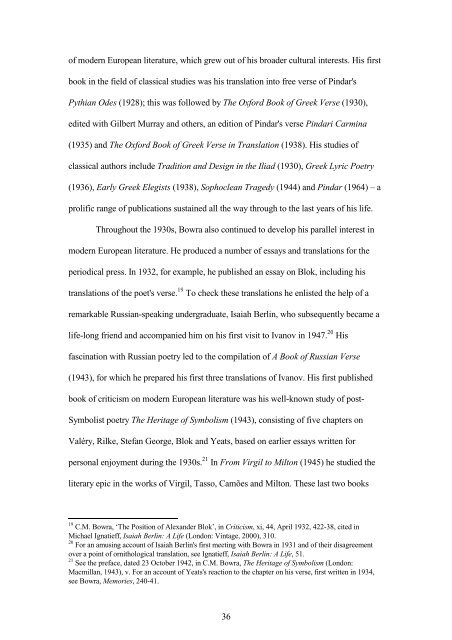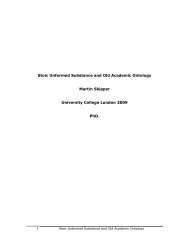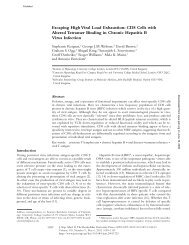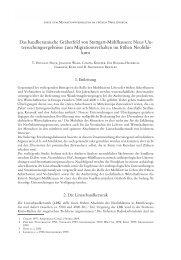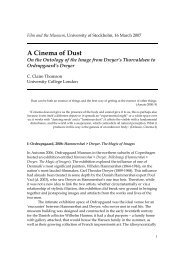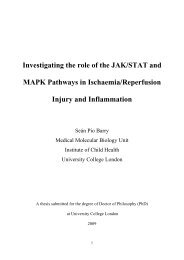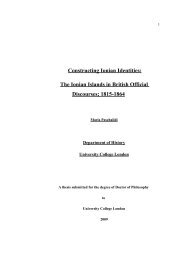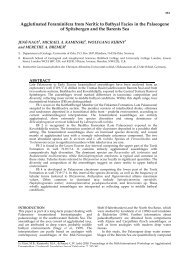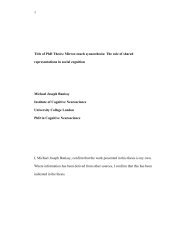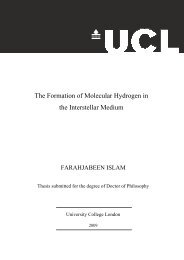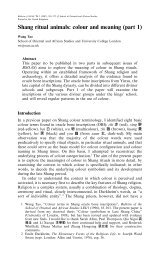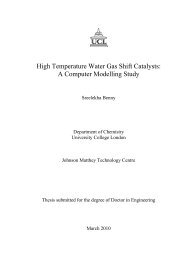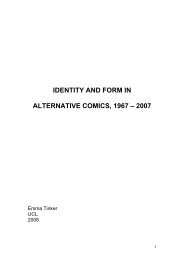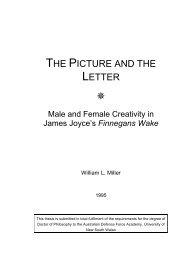Vyacheslav Ivanov and C.M. Bowra: a ... - UCL Discovery
Vyacheslav Ivanov and C.M. Bowra: a ... - UCL Discovery
Vyacheslav Ivanov and C.M. Bowra: a ... - UCL Discovery
You also want an ePaper? Increase the reach of your titles
YUMPU automatically turns print PDFs into web optimized ePapers that Google loves.
of modern European literature, which grew out of his broader cultural interests. His first<br />
book in the field of classical studies was his translation into free verse of Pindar's<br />
Pythian Odes (1928); this was followed by The Oxford Book of Greek Verse (1930),<br />
edited with Gilbert Murray <strong>and</strong> others, an edition of Pindar's verse Pindari Carmina<br />
(1935) <strong>and</strong> The Oxford Book of Greek Verse in Translation (1938). His studies of<br />
classical authors include Tradition <strong>and</strong> Design in the Iliad (1930), Greek Lyric Poetry<br />
(1936), Early Greek Elegists (1938), Sophoclean Tragedy (1944) <strong>and</strong> Pindar (1964) – a<br />
prolific range of publications sustained all the way through to the last years of his life.<br />
Throughout the 1930s, <strong>Bowra</strong> also continued to develop his parallel interest in<br />
modern European literature. He produced a number of essays <strong>and</strong> translations for the<br />
periodical press. In 1932, for example, he published an essay on Blok, including his<br />
translations of the poet's verse. 19 To check these translations he enlisted the help of a<br />
remarkable Russian-speaking undergraduate, Isaiah Berlin, who subsequently became a<br />
life-long friend <strong>and</strong> accompanied him on his first visit to <strong>Ivanov</strong> in 1947. 20 His<br />
fascination with Russian poetry led to the compilation of A Book of Russian Verse<br />
(1943), for which he prepared his first three translations of <strong>Ivanov</strong>. His first published<br />
book of criticism on modern European literature was his well-known study of post-<br />
Symbolist poetry The Heritage of Symbolism (1943), consisting of five chapters on<br />
Valéry, Rilke, Stefan George, Blok <strong>and</strong> Yeats, based on earlier essays written for<br />
personal enjoyment during the 1930s. 21 In From Virgil to Milton (1945) he studied the<br />
literary epic in the works of Virgil, Tasso, Camões <strong>and</strong> Milton. These last two books<br />
19 C.M. <strong>Bowra</strong>, ‘The Position of Alex<strong>and</strong>er Blok’, in Criticism, xi, 44, April 1932, 422-38, cited in<br />
Michael Ignatieff, Isaiah Berlin: A Life (London: Vintage, 2000), 310.<br />
20 For an amusing account of Isaiah Berlin's first meeting with <strong>Bowra</strong> in 1931 <strong>and</strong> of their disagreement<br />
over a point of ornithological translation, see Ignatieff, Isaiah Berlin: A Life, 51.<br />
21 See the preface, dated 23 October 1942, in C.M. <strong>Bowra</strong>, The Heritage of Symbolism (London:<br />
Macmillan, 1943), v. For an account of Yeats's reaction to the chapter on his verse, first written in 1934,<br />
see <strong>Bowra</strong>, Memories, 240-41.<br />
36


